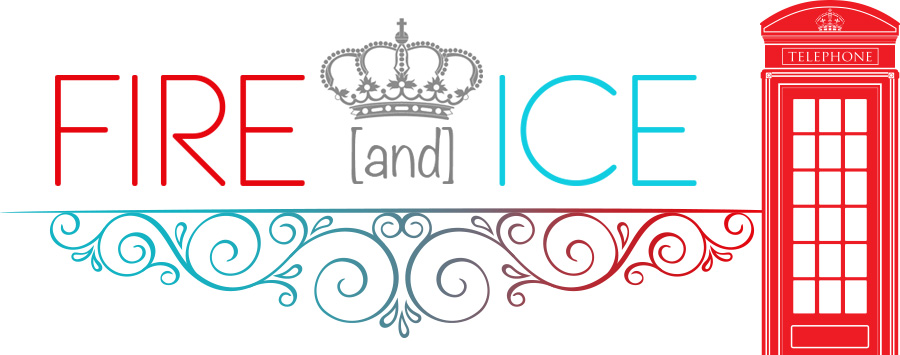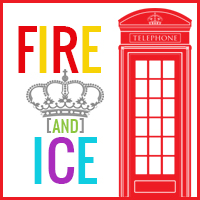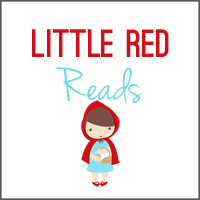 |
| Photo courtesy of StephenTrimble.net |
Stephen Trimble rode up to the locally owned cafe on bicycle and immediately greeted the founder of one of the nation’s most successful independent bookstores — the King’s English. In his personable and down-to-earth manner, he continued to greet other locals from his Avenues neighborhood. When we sat down for an interview, I recognized how knowledgeable Stephen is about the Utah landscape. One passerby complimented him on some spots he had recommended for their Grand Canyon trip. Stephen knows the national parks well. He always felt that park rangers were the coolest people, and after college he got a job as a ranger himself. Mr. Trimble explained that, back in his day, the parks would publish 32-page booklets with photographs of each park and that, as a resident ranger, one of his first jobs was to photograph and write for the National Park Service. Through the years he has published more than 20 books and sold many photos as a result of his love for editorial photography.
As a kid, he loved books more than baseball. Interestingly, he sees the world flat, like a photo print, due to an inability to see things in 3D. His father, a geologist who loved history, gave Steve a camera — then started critiquing his photos. “I take photos to record what I see and tell a story with the photos. I try to do my craft well,” Stephen relates. (I also found it interesting that Stephen has always shot Nikon.)
He has seen the publishing process and photography business change over the years. At first he published through the national parks, the museum presses, and finally university presses. “My photography always made more money than the words. I made money from the reproduction of my images and stock photos. But nowadays, photo editors can go poking around on the web and someone who has uploaded their pictures on Flickr will be offered a spot in a magazine or book for free. Stock photography has all but disappeared.”
Mr. Trimble now teaches a writing course to incoming Honors students at the University of Utah and teaches seminars on photographing western landscapes. His narrative writing skills have been used featured in the new Natural History Museum. Conservation organizations hire him as a writer for his knowledge as a naturalist and for his passion for the natural world. He’s been writing about the Canyon Country in southern Utah since age 20 and now maintains a home in Torrey, Utah — the true geography of his childhood. “Utah’s a great place to be a writer because there are several very supportive communities and there are so many people connected to the land, like Teresa Jordan, Amy Irvine, and Terry Tempest-Williams. There are other fine nature writers teaching, as well:George Handley at BYU and Jim Aton at SUU. The landscape here is powerful; it draws people. Writing about it is a humbling experience.”
His advice for up-and-coming authors? First: “write what you know and know what you write. It has to be something you are passionate about. Write about what you care about.” Secondly “always try to keep making your writing better. Look at the newer style guides, and when you find yourself feeling stale, read breathtakingly good books.” For Stephen, those include a wide range of writers from John McPhee of the New Yorker, Annie Dillard, JK Rowling, and Ellen Meloy.
I asked Stephen what legacy he hopes to leave behind and he answered, “I hope to do everything I’ve done as well as I can do it. I recently heard Colin Powell talk about the lessons he learned as a young man. One was ‘Do a good job even when no one is looking.’ I like that.” He often asks himself “what is the most important thing I can do next with my time ? What’s important to spend my time on right now?” “I think maintaining relationships with the people I love and doing work well — to the very end — is important, because you never know when the end is going to come.”
Stephen Trimble was born in Denver, his family’s base for roaming the West with his geologist father. After a liberal arts education at Colorado College, he worked as a park ranger in Colorado and Utah, earned a master’s degree in ecology at the University of Arizona, served as director of the Museum of Northern Arizona Press, and for five years lived in Indian Country near Santa Fe, New Mexico. He has been a full-time free-lance writer and photographer since 1981,based in Salt Lake City for twenty-five years.
Trimble’s distinctive voice as a naturalist leads visitors through the new (2011) Natural History Museum of Utah, where he wrote much of the exhibit text. Trimble has received significant awards for his photography, his non-fiction, and his fiction—and the breadth of those awards mirrors the wide embrace of his work: The Sierra Club’s Ansel Adams Award for photography and conservation; The National Cowboy Museum’s Western Heritage “Wrangler” Award; and a Doctor of Humane Letters from his alma mater, Colorado College,honoring his efforts to increase our understanding of Western landscapes and peoples. As one of two Wallace Stegner Centennial Fellows at the University of Utah’s Tanner Humanities Center in 2008-2009,he co-taught two classes and led a statewide conversation about Stegner: www.stegner100.com.
Environmental historian James Aton believes Trimble’s “books comprise one of the most wellrounded,sustained, and profound visions of people and landscape that we have ever seen in the American West.” Bloggers at The Gulch judge Trimble to be “one of America’s best naturalist writers; nobody else produces prose that is quite so pure, spare, beautiful and clean.”
As writer, editor, and photographer Trimble has published more than 20 books. His bedrock focus is the land—western wildlands and natural history—including: Bargaining for Eden: The Fight for the Last Open Spaces in America • Lasting Light: 125 Years of Grand Canyon Photography •The Geography of Childhood: Why Children Need Wild Places (with Gary Paul Nabhan) • The Sagebrush Ocean: A Natural History of the Great Basin • Earthtones: A Nevada Album (with Ann Ronald) • Blessed By Light: Visions of the Colorado Plateau • and • Words From the Land:Encounters with Natural History Writing. Trimble spent ten years listening to Southwest Indian people, and their stories fill his books: The People: Indians of the American Southwest • Talking With the Clay: the Art of Pueblo Pottery in the 21st Century • and • Our Voices, Our Land. He has also appeared on local and national NPR, including “Talk of the Nation” and “The Savvy Traveler.”
Trimble co-compiled (with Terry Tempest Williams) a landmark effort by writers hoping to sway public policy: Testimony: Writers of the West Speak on Behalf of Utah Wilderness. On March 27, 1996,Senator Russ Feingold (D-WI) read Trimble’s essay from Testimony on the floor of the United States Senate during his plea to protect Utah wilderness. Feingold concluded with, “That short piece of writing is so powerful…because it is a timeless statement about how people feel about natural places.”
With his family, Trimble makes his home in Salt Lake City and in the redrock country of Torrey,Utah. From his attic studio in the city, he looks out on the Wasatch Mountains and Great Basin Desert.He is currently presenting readings from Bargaining for Eden, his book about the tension between community and development at the beginning of the 21st Century (which won support from the Utah Humanities Council and Utah Arts Council and the 2008 Utah Book Award in Nonfiction), consulting with The Nature Conservancy’s Colorado Plateau Conservation Initiative, and teaching writing in the University of Utah Honors College. Trimble’s website is www.stephentrimble.net.
Upcoming Events with Stephen Trimble– He’ll be speaking at the Orem library on the evening of September 27th. And he’ll be speaking at BYU at lunchtime in the library special collections room at noon on October 19. Both talks will be general discussions of themes in his work
In addition be sure to sign up for Tutored by the Land: A Writing and Photography Workshop with Stephen Trimble at The Environmental Humanities Education Center at Centennial Valley, Montana. Sept. 12–16, 2012. Details can be found at http://continue.utah.edu/golearn/montana12



















Jessica (The Bluestocking Society)
Heather, this is such a great interview! Thank you so much for putting it together. I’ve recently become interested in naturalism, particularly Utah naturalism, and I have a couple of Mr. Trimble’s books on my book shelf, including TESTIMONY.
Heather Zahn Gardner
You are welcome! It was a fascinating interview. Thanks for setting it up.
Suey
I look forward to seeing him at the Orem Library. Awesome!